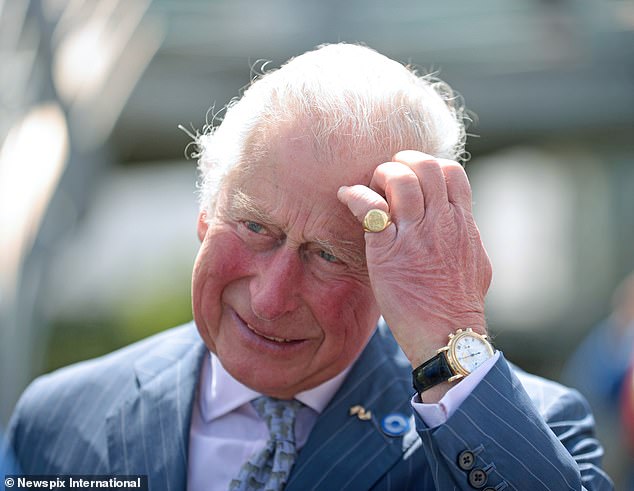DR MARTIN SCURR: Getting a serious diagnosis when you’re fit and healthy is devastating. Here’s what to do – and why Kate’s words will make a difference…
Sometimes the health problems that plague us can simply be due to bad luck.
It is clear that we can – and must – do everything to minimize the risk of ill health: eat a balanced diet, exercise; get enough sleep; and all the other “right things,” according to what the doctors tell us. After all, no one wants to get sick.
But that is not necessarily rewarded with good health. I am thinking, of course, of both the Princess of Wales and the King.
I would like to emphasize that none of us should speculate about the nature of her cancer, nor that of the King. There is a famous principle in psychiatry known as the Goldwater Rule, which states that psychiatrists should not “diagnose” public figures. The same goes for doctors, and that includes trying to guess the nature of an undisclosed illness.
But I think I can say that the recent news that tests after her surgery showed cancerous tissue is present is very shocking – and especially of course for the Princess and her family.
Tests after Kate’s abdominal surgery in January revealed the presence of cancerous tissue and the Princess of Wales is now undergoing preventative chemotherapy
These types of diagnoses are a bolt from the blue for anyone, but perhaps even more so for someone who leads a healthy lifestyle and who seems to have always done everything they can to stay in good health, and who is also so young. .
We’ve all read stories of centenarians who attribute their long lives to regular drinking or claim they’ve smoked since adolescence – but we all know these are the exceptions rather than the rule: taking care of yourself is important. However, it is not a guarantee.
It is understood that the Princess of Wales had symptoms that led to her surgery: and the findings, discovered postoperatively based on laboratory analysis, have revealed some malignancy. As I have seen so many times before, the time a patient spends waiting for results is a time of great anxiety, buoyed by hope: life seems to be on hold.
Why does it take so long for the results to be known? Because laboratory studies can be complex and often involve a number of experts, multidisciplinary team discussions are held – all very necessary to ensure accuracy in presenting what will be life-changing information to the patient and their family.
In addition to dealing with the fear and anxiety of the diagnosis itself, there is also the fear and anxiety of accepting life that is not as you planned. Suddenly the automatic assumption that you have many long and healthy years ahead of you is eroded.

King Charles has also been diagnosed with a form of cancer after it was discovered during treatment he received for an enlarged prostate
And a cancer diagnosis is something more and more of us will have to deal with. As a medical student 50 years ago, I learned that one in five people will develop cancer in some form at some point.
Now as many as one in two will develop some form of this disease, according to the NHS – and although we tend to think of cancer as a disease of older age, younger people are increasingly developing this disease (and although diet, lifestyle and environmental factors are linked to this, it is actually not clear at all what is going on).
Countering this concern, however, are the striking changes in cancer treatment with highly advanced radiotherapy to target solid tumors, highly effective chemotherapy and, in more recent times, the stunning advances in immunotherapy, which harnesses our own immune system to kill cancer cells. to row.
So there is a lot of positive news to cheer about.
But if taking care of yourself is no guarantee of cancer prevention, I believe it is important to encourage anyone diagnosed with the disease to make lifestyle changes that allow them to strengthen their own immune responses and minimize any side effects of treatment. .
This means trying to exercise, even something as simple as walking quietly if that’s all you can manage. Research increasingly shows that exercise can reduce the risk of recurrence and the side effects of chemotherapy, such as nausea. Eating well and trying to get enough rest and sleep will also help.
Another cornerstone we should not forget is emotional support; a serious diagnosis can be life-changing and in my opinion, consulting a counselor can be very helpful in coming to terms with what it means for your life now. Or maybe you prefer to talk to family and friends.
Whatever your choice, the most important thing to know is that you are not alone – the very words the Princess of Wales herself used in her broadcast.
In the face of her own serious diagnosis, she has shown immeasurable strength and resilience and the example she has set – at a time when she has had to deal with the burden and fear of her diagnosis, along with the trauma, for weeks of initiation and long-term chemotherapy – will be therapeutic for many who experience similar experiences. What she has achieved is incalculable.
